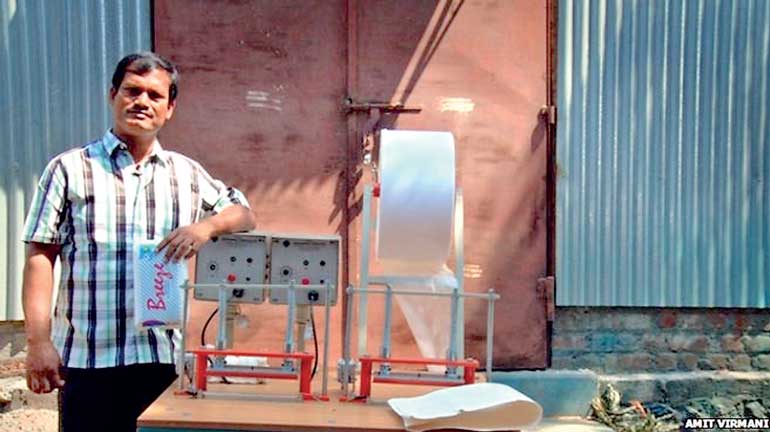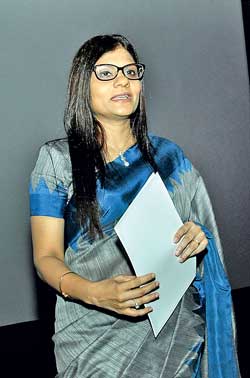Saturday Feb 28, 2026
Saturday Feb 28, 2026
Tuesday, 20 February 2018 00:00 - - {{hitsCtrl.values.hits}}

Throughout the centuries, a plethora of cultural and social taboos have been associated with menstruating girls and women, as well as menstrual health. In many parts of the world, women are still not allowed to leave the confines of their homes while menstruating. 
While menstrual hygiene and menstruation related concerns are relevant to more than 4.2 million women in Sri Lanka, the culture surrounding the topic, which remains closed, tends to sideline the issue. Studies indicate that only around 30% of women in Sri Lanka use sanitary napkins to manage their monthly cycle. A large segment of the female population still resort to unconventional ways with women often resorting to horrific means such as repeatedly using the same unsterilised cloth during menstruation and even using gunny bags and plastic instead of sanitary napkins. Due to these unhygienic methods, women are prey to a host of illnesses and fatalities which inhibits and deprives them of opportunities in schools, workplaces and in running their own businesses.
Although, there is a well-developed sanitary napkin industry with major players, these sanitary napkins are often unaffordable and unaware to the millions of Sri Lankan women living in low-income and under-privileged communities. This is primarily due to the cost of the sanitary napkins resulting from the use of expensive machinery and profit margins.
SAARC Chamber Women Entrepreneurs Council (SCWEC) under the leadership of Rifa Musthapha inaugurated a business model whereby a cost-effective sanitary napkin manufacturing machine will be introduced to women entrepreneur clusters or Self Help Groups (SHGs), through which women can produce and market bio-degradable, low cost sanitary napkins locally.
First introduced to the Women’s Welfare Society, Jinthupitiya, Colombo 13, will be conducted at the Gangaramaya Vocational Training Centre in Colombo under the guidance of SCWEC. The pilot roll-out will include key urban and rural areas in Sri Lanka, after which the project will be replicated in select townships among the SAARC Countries.
The machine and technical know-how was obtained from Dr. Arunachalam Murugananantham, the innovator and social entrepreneur who kickstarted a menstrual hygiene movement in South India, the module of which is being replicated worldwide with machines being purchased as far as Massachusetts in the US. The film ‘Padman’ is based on his story.
“The business model propagated by SCWEC upholds the belief ‘by the women, for the women, and to the women’,” said SCWEC Chairperson Rifa Musthapha. “It is a sustainable, revenue generating enterprise that gives stakeholders the opportunity to be actively involved and engaged in manufacturing and distributing the product. By making a nominal investment in the machine and employing around four women per machine, Self Help Groups (SHGs) can empower women in marginalised communities through income generation and helping them gain more control over their lives. By going directly from the producer to the consumer, the microcredit delivered to women is used in an optimum manner.”
SCWEC Vice Chairperson and Women’s Chamber of Industry and Commerce current Chairperson Chathuri Ranasinghe said, “In order to achieve the Millennium Development Goals and Indicators related to women, it is crucial to ensure accessibility and affordability of female health care products such as sanitary napkins to all women, especially those living below the poverty line. Through this project, we hope to restore the power of decision making of women’s health issues back in the hands of women.”
Speaking further on the initiative, Musthapha added, “A woman plays such a pivotal role in her family. She is a caregiver, a nurturer and a provider. She is a mother, wife, daughter as well as income generator. Her menstruation, which is a very natural biological process, should not hold her back or get in the way of her endeavours. However, if not managed carefully and hygienically, a woman’s monthly cycle can lead to complications that would otherwise been controlled.”